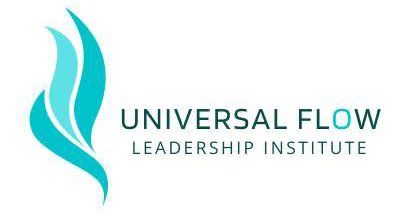Leadership Soft Skills
Leadership Soft Skills: The Secret to Success
We offer workshops for Teams, Organizations and Individuals for personal growth. Visit our cloud based, learning management system. Each online course is self-paced and user friendly.
Why Are Soft Skills Important?
Employers recognize the importance of soft skills in the workplace, so it's important to showcase these skills when applying for jobs or promotion. Soft skills show employers your personal attributes and qualities. To help you succeed, here are 9 reasons soft skills are an important part of finding a job and helping you advance your career:
Communication
Communication soft skills are the tools you use to converse with others clearly and effectively, set expectations, and collaborate on projects. Communication skills are more than speaking or emailing. This umbrella set of interpersonal skills includes everything from collaboration to active listening. Ultimately, effective workplace communication helps drive better results for individuals, teams, and organizations. Workplace communication is vital to an organization’s ability to be productive and operate smoothly.
Longevity
Soft skills like conflict resolution, commitment, and motivation make you a long-term asset to employers. Your professionalism and work ethic are other important indicators of longevity at a job, which can help you distinguish yourself from other candidates for the position or promotion.
Develop your leadership skills
You can show employers your leadership capabilities by emphasizing soft skills on your resume. Focusing on your soft skills shows you’re thinking about how your habits and attitude impact others in the workplace, which is an essential part of great leadership. Employers value soft skills because they're more nuanced than technical skills, and employees with soft skills can adapt quickly to different environments. People with strong soft skills can analyze leadership strategies to help their team succeed and implement unique strategies in dynamic settings.
Teamwork
Employers use soft skills to measure your teamwork and communication abilities. demonstrating your teamwork skills shows employers you can be an asset to others in the workplace. Listing soft skills like flexibility and active listening on your resume, will appeal to an employer's goal of finding a great team member.
Relationships
Employers seek employees they can trust to represent the company in a professional and friendly way. Soft skills not only support your workplace relationships, but also determine your success in working with clients and business partners. Soft skills differentiate between candidates who are qualified for a job and candidates who exceed expectations by putting effort into their professional relationships.
Your network
Soft Skills are critical for creating and growing your network and making professional contacts in the workplace. Employers rely on people with a strong professional network to help them make business connections, provide professional development, and make hiring decisions. Your employer may value your opinions and ideas more highly if your network is valuable to a company.
Facilitate growth
Accepting and implementing constructive feedback is a valuable soft skill that can help you improve your productivity and quality of work. most soft skills contribute to your ability to use your existing skills well and develop and grow those skills consistently over time. Use your soft skills to be self-sufficient and reflective in your work and you can quickly become an outstanding leader.
Stay organized
Attention to detail, time management and the ability to delegate are all soft skills that help you stay organized at work. Being organized can show employers you're a reliable employee who meets deadlines.
Confidence
Your social skills can help you navigate workplace issues with confidence. Your confidence can help you influence others and persuade them of your perspective in professional situations. Using soft skills to build your confidence can help you integrate into a new workplace environment and establish yourself as an essential team member.
Leadership soft skills are the abilities you need to work well with others, but they aren't the same thing as hard skills, which are the specific things you need to do your job. Soft skills include things like communication, problem-solving, time management, and being a good team player.
These skills are important because they help you develop relationships with your coworkers, customers, and other stakeholders. They also help you take on leadership roles more effectively when you're part of a team.
For example, if you have good people skills, your team members will feel comfortable approaching you for advice or help. If you're not good at listening or communicating clearly when dealing with others, then it may be harder for them to trust your judgment in decision-making processes.
Put Yourself on the Path to Success
Leadership is a tough job. You must make decisions, motivate people, and keep the team working together. But how do you do all of this without losing sight of yourself?
We're here to help you find the balance between your personal needs and those of the company. Our soft leadership skills will teach you how to:
- Understand how your personal style affects your leadership skills.
- Learn to be more empathetic and compassionate with others.
- Deal with conflict in an effective way that doesn't hurt morale or productivity.
If you want to take your leadership skills to the next level and see results in your life at work and at home, check out our digital courses today. We offer coaching sessions that focus on soft skills—things like communication, self-awareness, and managing change to help clients thrive in their leadership roles.
Universal Flow Leadership Institute


